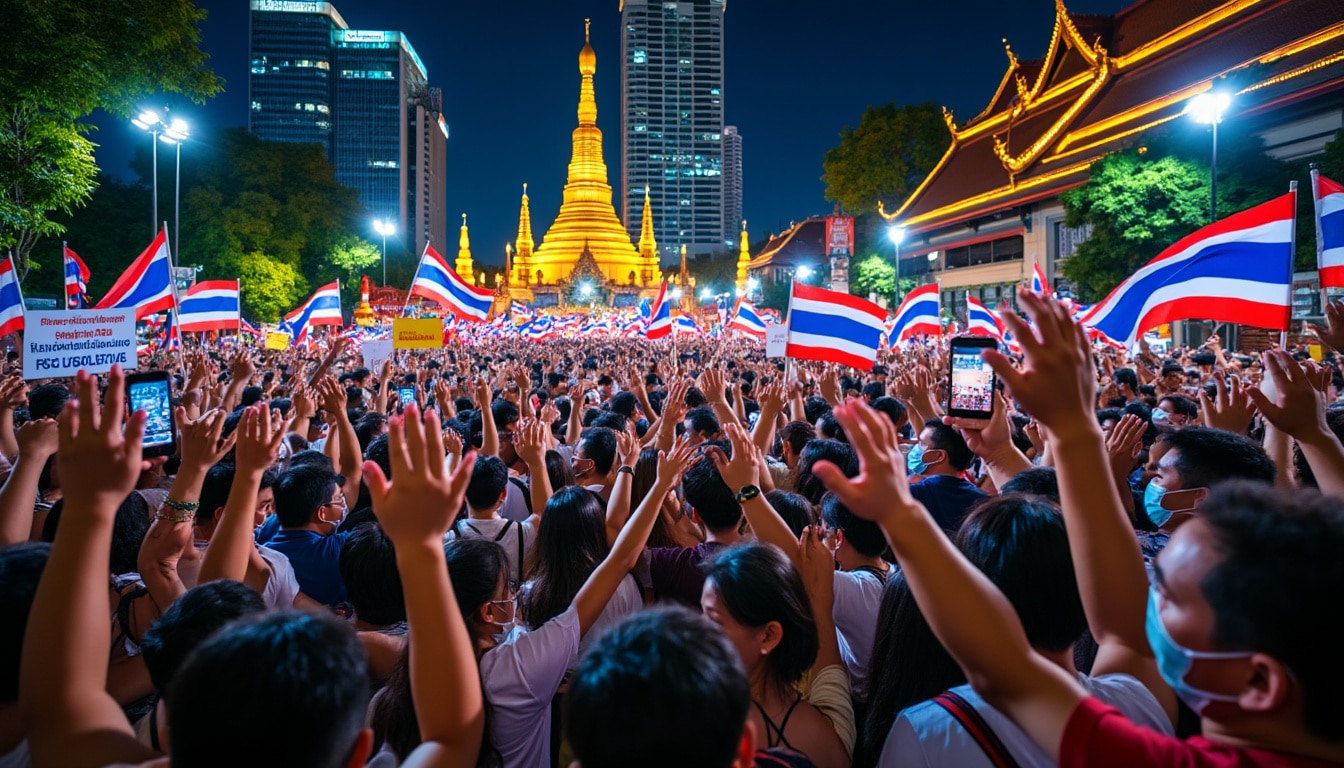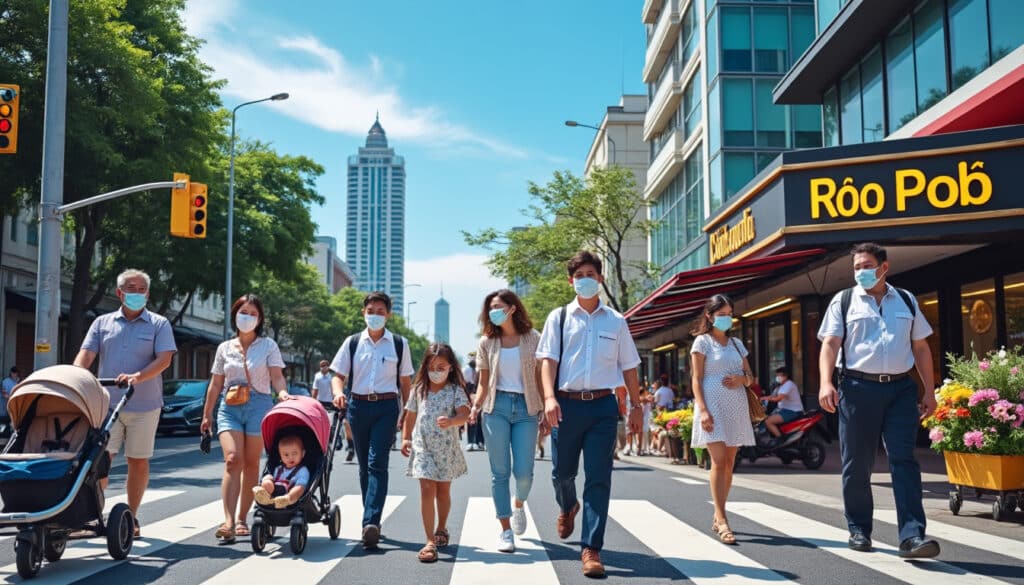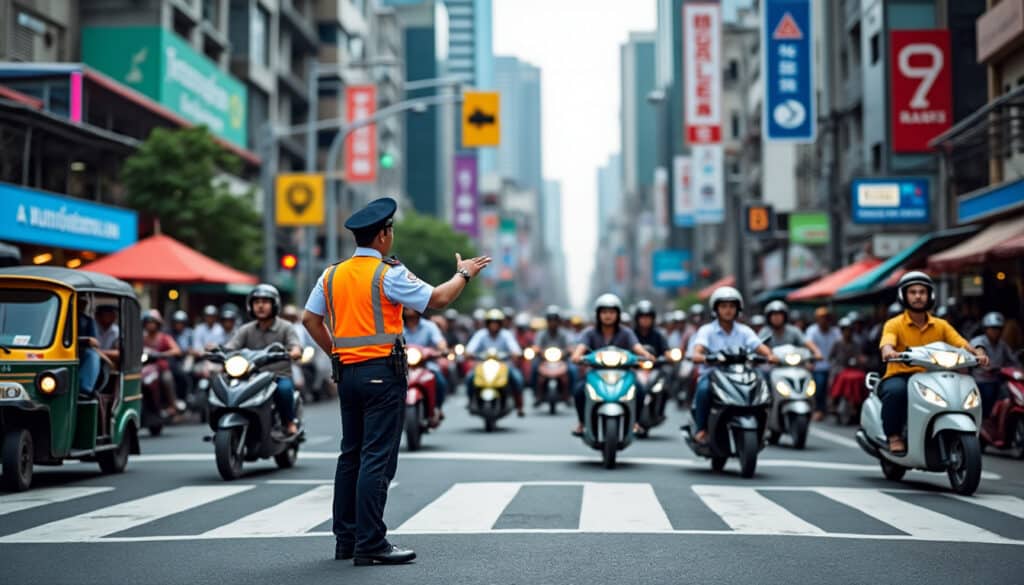The vibrant streets of Bangkok, renowned for their bustling life and cultural richness, have recently become a stage for significant political and social transformations. The city has emerged as a central hub of protest activities, highlighting deep-rooted issues within the nation’s political fabric. With the international community closely monitoring these events, the unfolding situation in Bangkok offers a poignant glimpse into the broader dynamics at play in Thai society. The protests, primarily driven by youth and pro-democracy advocates, have underscored critical demands and showcased the resilience of Bangkok’s citizens. As social movements continue to gain momentum, the world watches intently, hoping for a peaceful and constructive resolution.
The Rise of Protests in Bangkok: A Closer Look at the Motivations
In an environment where political expression has often been met with resistance, Bangkok’s recent wave of protests stands out as a profound expression of social dissatisfaction. The primary demands revolve around reforming Thailand’s current constitution, addressing the power of the monarchy, and advocating for greater civil liberties. These protests are not isolated incidents but rather a culmination of years of political turmoil and civic activism.
The origins of these protests can be traced back to 2020, when pro-democracy movements gained traction, primarily among the youth and university students. The younger generation in Thailand has voiced their discontent with limited opportunities and restricted freedoms. Their demands for transparency, accountability, and modernization in governance have resonated with a wide demographic, causing these movements to swell in size and scope. For details on the legal framework governing protests, you can learn more about Bangkok’s laws here.
Key factors fueling the protests include:
- 📜 Demand for Constitutional Reform: Protesters are calling for changes to the 2017 constitution, which was drafted under military rule.
- 🏛️ Monarchical Power: There is a pressing need to reassess the monarchy’s significant influence in politics.
- 🗣️ Freedom of Speech: Participants advocate for the protection of free expression and have been vocal against laws like the lèse-majesté law.
- 💡 Economic Discontent: Economic challenges, exacerbated by the pandemic, have increased public frustration.
The complexity of these issues makes the protests not just a political statement but also a plea for socio-economic justice. As the demonstrations grow, they continue to attract the attention of international organizations like Amnesty International and Human Rights Watch, both of which have been active in advocating for the protection of demonstrators’ rights. The involvement of these global entities underscores the protests’ significance beyond Thailand’s borders.
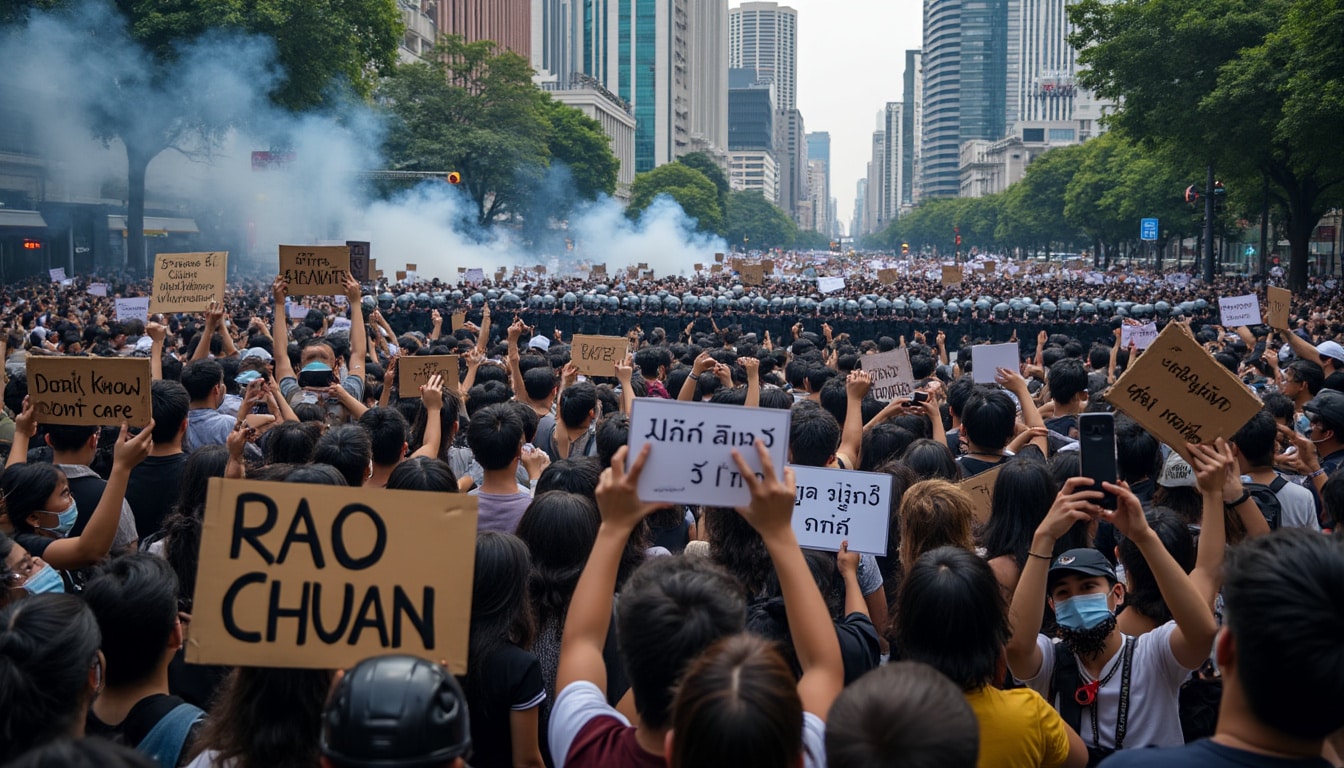
The Role of Social Media and Youth in Bangkok’s Protests
As digital platforms become ever more entrenched in societal exchanges, the influence of social media on organizing and amplifying protest movements cannot be overstated. Platforms like Twitter and Facebook have been pivotal in mobilizing young Thais and expanding the reach and immediacy of their message. These tools have not only been essential for coordination but also for internationalizing the movement and drawing attention to the protesters’ plight.
Bangkok’s young activists, savvy with technology, have utilized these platforms to issue live updates, coordinate efforts, and circumvent traditional media restrictions. This approach has birthed a new mode of activism, one that thrives on rapid information dissemination and global connectivity. Influencers and prominent social media figures have also used their platforms to lend support, creating viral content that engages a wider audience.
The strategies employed by the youth extend beyond mere organization:
- 🔊 Education and Awareness: Posting educational content on the importance of reforms and civic participation.
- 🛡️ Security Tips: Sharing advice on how to maintain personal safety during protests. For more safety guidelines during these turbulent times, refer to Bangkok safety tips.
- 🎨 Art as Activism: Utilizing creative mediums like street art and memes to express dissent and familiarity.
- 🎥 Real-time Broadcasting: Using livestreams to show events as they happen, ensuring transparency and building empathy.
Such efforts have been critical in maintaining momentum and ensuring that the voices from the streets of Bangkok echo across the globe. The digital age has empowered young activists to champion causes with unprecedented impact and reach, fundamentally altering the landscape of civic activism.
International Reaction to the Bangkok Protests
Bangkok’s protests have reverberated worldwide, drawing varied responses from global governments and international organizations. Nations with strong diplomatic and economic ties to Thailand have been particularly attentive, carefully gauging their responses to avoid disrupting relations while supporting democratic values.
Democracy Now!, a renowned international watchdog, has been fervently advocating for peaceful resolutions and monitoring government actions against protesters. Organizations like the ACLU and Human Rights Campaign have issued statements emphasizing the importance of upholding freedom of assembly and speech, core tenets of any democratic society.
Significant international entities, such as the United Nations and the European Union, have also weighed in. They have called on the Thai government to engage in dialogue and limited the use of force against peaceful demonstrators. Given Thailand’s strategic position within ASEAN, the regional bloc has shown concern, urging de-escalation and meaningful reform.
Here is a representation of major international reactions:
| International Entity | Reaction | Actions Taken |
|---|---|---|
| 🌐 United Nations | Called for restraint and dialogue | Issued reports and recommendations |
| 🇪🇺 European Union | Expressed concern over human rights | Held diplomatic discussions |
| 🌎 Democracy Now! | Advocated for democratic reforms | Organized awareness campaigns |
The global response underscores the significance of the ongoing turmoil in Bangkok and highlights the city’s pivotal role on the international stage.
Government Responses and Challenges
The Thai government’s response to the protests has been heavily scrutinized by both domestic and international observers. The administration’s strategies have ranged from attempting conciliatory dialogues and promising reform, to deploying more stringent measures to curb the demonstrations. Despite ongoing efforts to quell the unrest, achieving a peaceful resolution remains a formidable challenge.
Authorities have utilized the lèse-majesté law extensively to limit dissent, a move criticized by human rights organizations like Civil Rights Corps and Freedom House. Moreover, the government’s crackdown on activists has drawn global ire, with critics pointing out the stark contrast between democratic aspirations and the state’s authoritarian measures.
The current scenario poses several challenges:
- 🛡️ Balancing Stability and Freedom: Ensuring public order while respecting citizens’ rights to protest.
- 📈 Economic Implications: Managing the economic impact of social unrest, crucial for a tourism-dependent economy. For additional safety guidance and tips for tourists, the Bangkok safety guide is a useful resource.
- 🎨 Perceptions of Governance: Restoring trust in political institutions and addressing accusations of nepotism and corruption.
- 🔄 Facilitating Dialogue: Encouraging constructive conversations between government officials and protest leaders.
The Thai government’s response strategy remains a topic of intense scrutiny and debate, both domestically and internationally. The delicate balance between maintaining public order and respecting democratic freedoms will likely define the political landscape of Thailand in the coming years.
Moving Forward: The Future of Protests and Reforms in Bangkok
While the current situation in Bangkok is fraught with uncertainty, it has also sparked a broader conversation on Thailand’s democratic future. The result of these protests could be pivotal in shaping the nation’s trajectory, especially concerning governance, civil rights, and public policy.
Efforts to address systemic issues have led to discussions about potential avenues for reform. Activists are optimistic that their actions will catalyze significant changes, aligning with democratic principles and social justice goals championed by organizations like Greenpeace and Oxfam. These developments, coupled with international pressure, might compel the government to reconsider its stance and prioritize democratic reforms.
Here are pivotal factors that could contribute to a more democratic Thailand:
- 🗳️ Electoral Reforms: Introducing transparent electoral processes and fair representation of all citizens.
- 📃 Legal Adjustments: Amending laws like the lèse-majesté to align with international human rights standards.
- 🌍 International Support: Engaging with global allies to mediate and support democratic efforts in Thailand.
- 👥 Civic Engagement: Encouraging a culture of political participation and awareness among citizens.
In conclusion, Bangkok’s protests have ignited a critical dialogue that has the potential to reshape the Thai political landscape for future generations. The resilience and dedication of its citizens, coupled with both national and international advocacy, offer a glimmer of hope for a more inclusive, democratic society in Thailand.
FAQ
- What are the main demands of the protestors in Bangkok?
Protestors are advocating for constitutional reforms, limiting monarchial powers, and ensuring greater freedom of speech and expression. - How have international organizations responded to the protests?
Groups like Democracy Now!, ACLU, and Human Rights Watch have urged the Thai government to respect democratic principles and address the protestors’ demands peacefully. - What legal issues have been raised concerning the government’s response?
The excessive use of the lèse-majesté law to curb dissent has been a significant point of contention, drawing criticism from domestic and international human rights groups. - What role has social media played in the Bangkok protests?
Social media platforms have been crucial in organizing, mobilizing support, and disseminating information rapidly to a global audience. - Is there hope for democratic reforms in Thailand?
Yes, ongoing international pressure and local activism continue to push for meaningful reforms, although challenges remain significant.
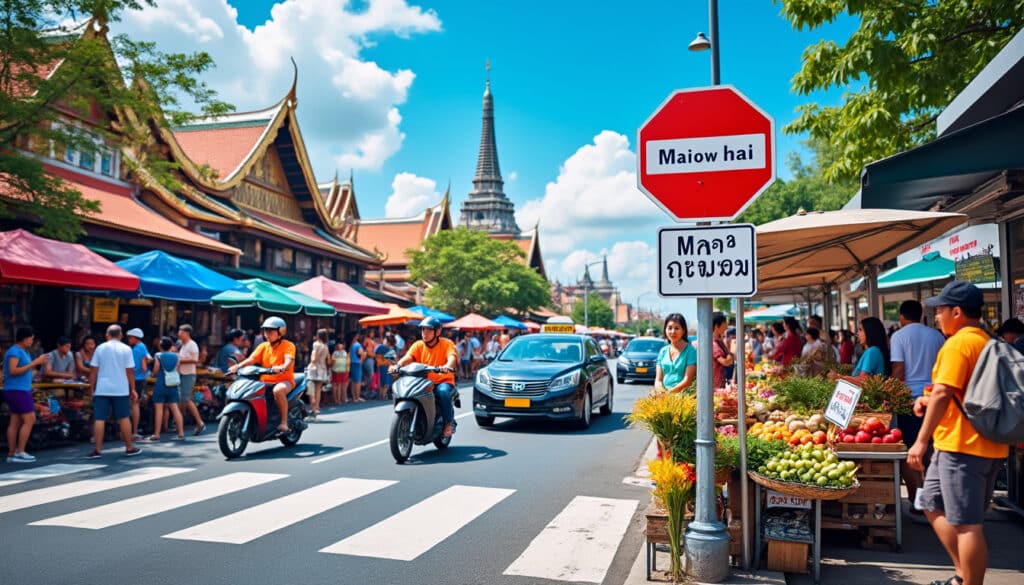
Thailand’s bustling capital, Bangkok, is a vibrant city brimming with history, culture, and mouthwatering street food. However, like any major metropolis, traveling there requires some safety awareness. Whether you’re marveling at the Grand Palace or navigating the night markets, staying…

Cleanliness and hygiene in Bangkok
Discovering the vibrant city of Bangkok goes beyond experiencing its iconic landmarks and tantalizing street food. Nestled amidst its bustling metropolis lies an intriguing tale of cleanliness and hygiene efforts that highlight a city striving for a cleaner future 🌱.…

Pickpocketing and theft in Bangkok
In the bustling streets of Bangkok, a city known for its vibrant markets, rich cultural sites, and lively nightlife, the issue of pickpocketing and petty theft remains a notable concern for locals and tourists alike. While the Thai capital is…
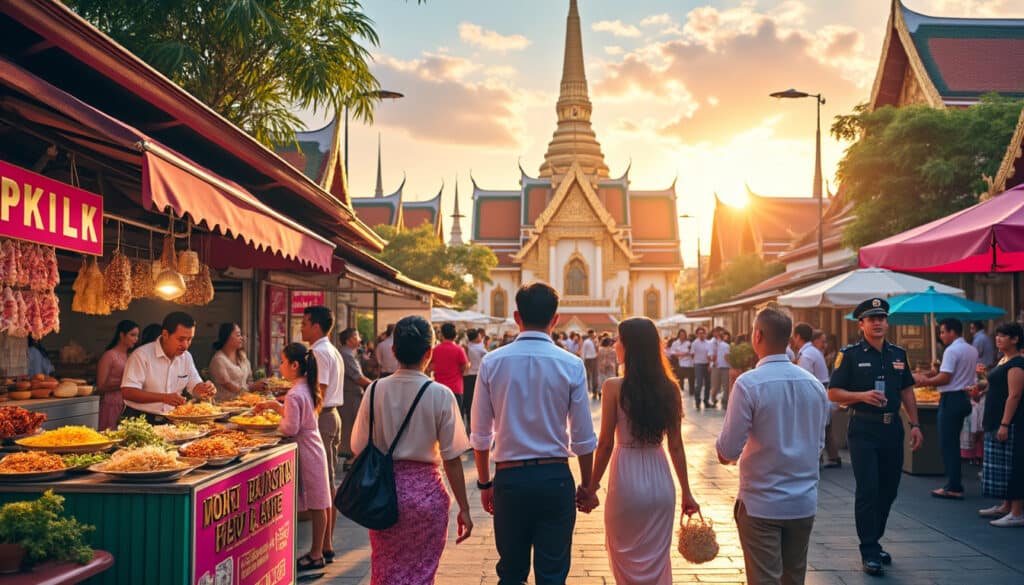
Safety in Bangkok for travelers from different countries
Bangkok, the vibrant capital of Thailand, continues to attract millions of visitors from around the world each year. Known for its vibrant street life, ornate temples, and mouthwatering cuisine, it is a city that promises endless exploration and excitement. However,…

